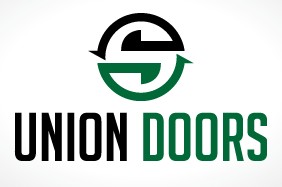GM, Ford in Beta Testing Even as Unofficial Profiles and Squatters Spread Across Platform
After three months of testing the social-network waters, Google+ is finally ready to make a big splash. In the past week, it ditched its invite-only program, began promoting registration from its seen-by-millions-daily homepage and declared the network ready for brands. But in some cases, squatters have already claimed some valuable brand names on the network.

At Ad Age’s Digital West conference last week, Christian Oestlien, group product manager for social advertising at Google, announced it’s close to unveiling Google+ business profiles that will permit companies to create pages and circles like those of an individual user of the social network. It’s an about-face from a July blog post in which Mr. Oestlien wrote that businesses should refrain from setting up profiles, noting a policy team was working to shut down profiles set up on behalf of companies. A number were killed, including those for Sesame Street, MTV and Mashable, all of which had enthusiastically tried to set up a presence on Google+ only to be told Google+ wasn’t ready for them.As it stands, only two marketers have gotten the official go-ahead to test the waters for Google+, automakers Ford and General Motors, whose beta status is identified by “test account” and “sneak preview” banners. But several unofficial business profiles have cropped up on Google+, set up surreptitiously by companies, fans or squatters registering the brand name.
As of late last week, Ad Age found a host of top names on the network, including Burger King, Starbucks, Home Depot, Kraft salad dressing, Verizon Wireless, Snapple, The Wall Street Journal and Condé Nast. In the case of Coca-Cola, Best Buy and Louis Vuitton, there were multiple profiles for each. The situation is reminiscent of what marketers discovered on Twitter a few years ago when they tried to register for Twitter handles and found those corresponding with their company names had already been claimed. In one egregious situation, Hyundai’s legal department wrangled with Twitter for months to obtain ownership of @Hyundai, to which an individual had posted racy photos.
At least one marketer isn’t overly concerned. Told that there is a Snapple profile on Google+, a spokesman for the Dr Pepper Snapple Group said it was typical for fans of brands to do such things. Robert Stone, director-interactive for the company, added, “We’re always looking at new opportunities to engage our fans. We’ve been monitoring Google+ since it launched and will actively seek ways to incorporate our brands when the time is right.”
It’s not quite the same on Google+, where one name can be registered multiple times. “It’s not a land-grab situation,” said Google spokesman Jim Prosser. “Right now it’s very clear, because there’s only two business we’re testing with, so in a very binary way, it’s clear that anyone who’s acting as a business on there [is not authentic].”
Clear, we suppose, to those who follow the business of Google+ closely. But clear to the average user? Probably not. And it will be frustrating for eager companies who waited patiently for Google’s green light only to realize the network has been filling up with fake profiles. In the short term, the companies have missed out on the chance to begin experimenting with the platform and connecting with fans. During its three-month, invite-only launch stage, Google+ is estimated to have amassed 25 million users — and now that the service has opened to all, the number should spike.
Said Michael Zuna, chief marketing officer of Aflac: “Given Google’s strong track record, both +1 and Google+ are platforms that we are closely watching. We are most interested in +1 because of its potential impact on search.”
Last month, Google+ announced plans to dole out verification badges to celebs and public figures. Asked whether a similar process will be rolled out for brands, Mr. Prosser all but confirmed it: “We’re not announcing anything yet, but you can see a good example by looking on the consumer side with what we’ve done for celebrities.”
Asked how Google+ plans to police the network for authentic and inauthentic users, Mr. Prosser said it is taking a few different approaches. If companies notice that a logo or profile is being improperly used, it can report the profile to Google, which will respond with what it calls a “soft takedown.” The user will be given a few days to change the name or appeal the finding before Google takes further action, but even if the person is found guilty there won’t be other ramifications; it won’t shut down Gmail or other services for the user.
Beyond that, Mr. Prosser said Google is using a “consumer-operations team that does work — both algorithmically and through people — to prevent folks that are trying to take on fake identities.”




















You must be logged in to post a comment.